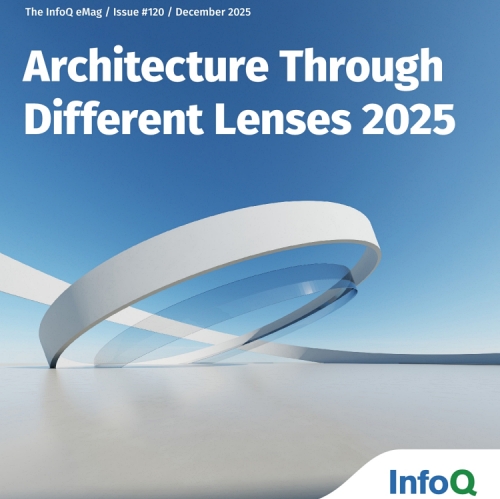Codetown
Codetown ::: a software developer's community
My sensor project is ProSense
Did you know there is a project called ProSense?
It's funded by European Commission's Seventh Framework Programme (FP7),
and it's aim is to raise the level of research potential of researchers from WBC
(Western Balkan Countries), particularly ones from FYRO Macedonia and Serbia
with help from the EU academic institutions and companies.
The project coordinator is Dr. Srdjan Krčo (Ericsson Ireland Research Centre).
Other partners are:
- Faculty of Electrical Engineering and Information Technologies, Macedonia
- INRIA, France
- University of Birmingham, UK
- Warsaw University of Technology, Poland
- CTI, Patras, Greece
- University of Belgrade, Serbia
- Jozef Stefan Institute, Slovenia
The project motto is:
"Promote, Mobilize, Reinforce and Integrate
Wireless Sensor Networking Research and Researchers:
Towards Pervasive Networking of West Balkan Countries and the EU"
The project started a year ago and it should end in March 2010.
I work as a part-time researcher at the School of Electrical Engineering (ETF),
University of Belgrade, Serbia. The team that I am part of has to design two WSN use-cases
- two Personal Health applications. Also, we have to establish a course and a laboratory for WSN at ETF.
We have several SunSPOT, Shimmer and Sensinode Development Kits to play with (since few weeks).
That's it for an introduction, now go on and browse our site and get back with comments!
Marko Stanković
Comment
-
Comment by Michael Levin on July 4, 2012 at 2:19pm
-
Marko, I noticed the sensor project ProSense has ended, or has it? I have worked with sensors including the SunSPOT. There's a lot of talk from some corners about SunSPOTs. What are a few of the most outstanding things you've learned so far? Best, Michael
Notes
Welcome to Codetown!
 Codetown is a social network. It's got blogs, forums, groups, personal pages and more! You might think of Codetown as a funky camper van with lots of compartments for your stuff and a great multimedia system, too! Best of all, Codetown has room for all of your friends.
Codetown is a social network. It's got blogs, forums, groups, personal pages and more! You might think of Codetown as a funky camper van with lots of compartments for your stuff and a great multimedia system, too! Best of all, Codetown has room for all of your friends.
Created by Michael Levin Dec 18, 2008 at 6:56pm. Last updated by Michael Levin May 4, 2018.
Looking for Jobs or Staff?
Check out the Codetown Jobs group.
InfoQ Reading List
Presentation: Architecting Planet Scale, Modern Apps in the Cloud

George Mao shares a deep dive into evolving a basic web application to a planet-scale, global architecture. He walks through 5 stages of maturity, focusing on adding enterprise-grade security, achieving global high availability and disaster recovery, optimizing content delivery costs with CDNs, and implementing globally consistent persistence using serverless technologies.
By George MaoMini book: Architecture Through Different Lenses 2025

This eMag explores architecture through five distinct lenses: the socio-technical forces that invisibly shape our code, the paradox of infrastructure that succeeds by disappearing, the power of distributed intelligence over centralized control, the evolutionary advantage of iteration over revolution, and the pragmatic reality of designing for inevitable complexity.
By InfoQPodcast: Bridging the Open Source Gap: From Funding Paradoxes to Digital Sovereignty

Gabriele Columbro, managing director of the Linux Foundation Europe, discusses the differences in the open-source landscape between Europe, China and the US. Stressing that the open-source landscape is the last favorable ground for global innovation in the current geo-political landscape.
By Gabriele ColumbroBellSoft Unveils Hardened Java Images

BellSoft has launched Hardened Images for Java containers, claiming 95% fewer CVEs and 30% resource savings. Built on Alpaquita Linux, the 3-in-1 solution combines runtime optimisation, OS hardening, and CVE remediation. It offers a secure, flexible alternative to Chainguard and Distroless, available now in three tiers.
By Mark SilvesterJava News Roundup: JDK 26 in Rampdown, JDK 27 Expert Group, GlassFish, TornadoVM, Spring gRPC

This week's Java roundup for December 1st, 2025, features news highlighting: JDK 26 in Rampdown Phase One; the formation of the JDK 27 Expert Group; GA releases of TornadoVM 2.0 and Spring gRPC 1.0; a point release of GlassFish 7.1; the December 2025 edition of Open Liberty; the first beta release of JHipster 9.0 and the second release candidate of Hibernate Search 8.2.
By Michael Redlich
© 2025 Created by Michael Levin.
Powered by
![]()
You need to be a member of Codetown to add comments!
Join Codetown